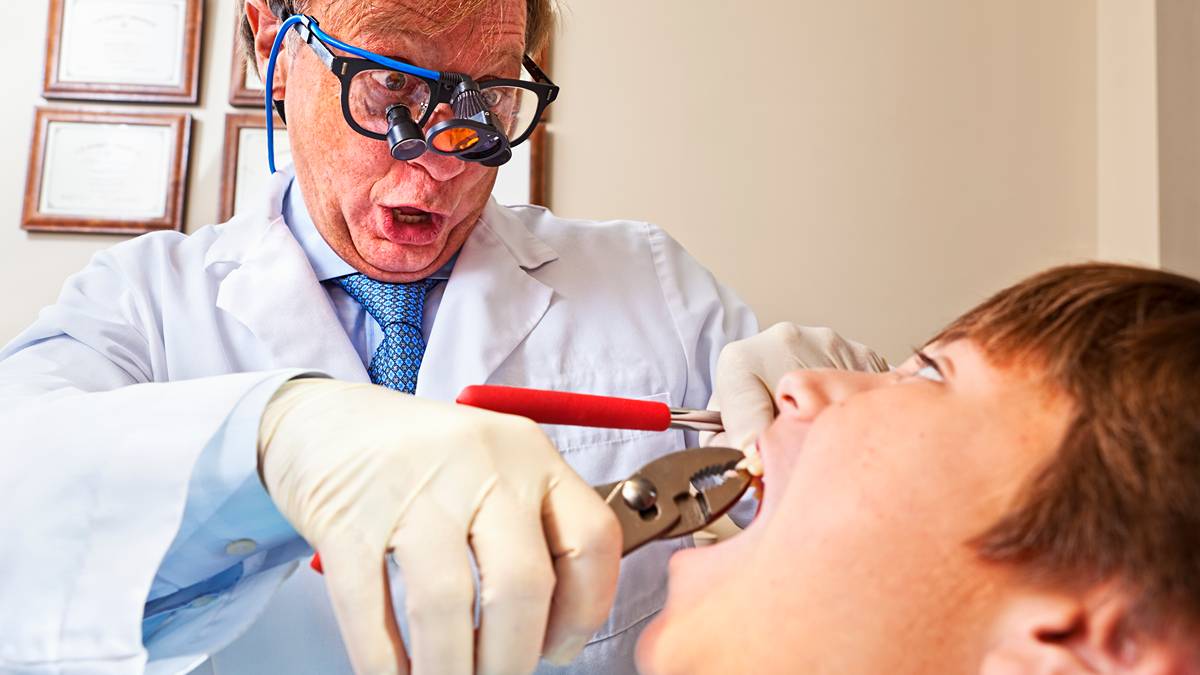Health Check: Dental supplier faces the hard tooth that amalgam fillings are on the way out

As with pliers, amalgam fillings no longer represent cutting-edge dental practice. Pic via Getty.
- Filling material supplier SDI pre-reports a flat result, partly because of declining amalgam sales
- Perspiring investors wipe more than 40% off Botanix share price after US market update
- FDA approves Cochlear’s ‘smart’ implant system
Veteran dental materials supplier SDI (ASX:SDI) has flagged soft numbers for the 2024-25 year, mainly because the world is phasing out amalgam filling material that contains mercury.
With pre-reporting results due out on August 28, SDI said revenue for the year to June would come in at $111 million, 0.2% lower than the previous year.
Net profit will be $10-10.4 million, compared with $10.4 million previously.
SDI cites a 20.45% decline in amalgam sales, most pronounced in North America and Europe.
Amalgams account for 13% of SDI’s sales, compared with 16% last year and 23% five years ago.
In absolute terms, however, SDI’s amalgam sales have been steady at $18 million – a trend not lost on anti-mercury proponents.
Overall SDI’s European and Brazilian sales grew 7.2% and 9.9% respectively in local currency terms, offset by overall weakness in the Middle East and Asia.
While an ugly grey, amalgam fillings remain popular because of their strength.
But given they contain 50% mercury, their use is either being restricted or banned.
The European Union is phasing out the use of the material by 2030, while Sweden and Norway have banned it.
Elsewhere, Moldova, Mongolia, some Persian Gulf states, and the Philippines have also outlawed the grey gob filler.
A global treaty, the Minamata Convention on Mercury aims to phase out dental amalgam but doesn’t impose a complete ban.
A signatory to this accord, Australia has restricted the use of bulk mercury in dental practices.
Today’s SDI release makes no mention of Stela, its replacement product that is pearly white and with the strength of an amalgam filling.
Quiet export achiever
For more than 50 years, SDI developed and exported dental supplies from its base in eastern Melbourne.
Now the company’s chair, Jeffery James Cheetham founded the company, then known as Southern Dental Industries in 1972.
SDI listed on the ASX in 1985 and is now run by Cheetham’s daughter Samantha.
And speaking of medtech exporters, Adelaide based optical device stalwart Nova Eye Medical (ASX:EYE) has reported June half sales (excluding China) of US$9.57 million, thus snugly meeting guidance of US$9-10 million.
Nova’s full year revenue was US$18.4 million, up 21% with the US accounting for US$14.2 million (up 25%).
Nova shares gained an eye-catching 12%.
Botanix US update hits a sweaty note
Addressing a webcast of more than 600 investors, Botanix Pharmaceuticals (ASX:BOT) announced it had chalked up $25 million of gross US Sofdra sales since launching the drug in January.
Despite this impressive take-up, punters wiped more than 40% – or $240 million – from the company’s market cap.
The reason appears to be a higher-than-expected gap between those gross sales and the amount the company pockets.
Sofdra treats primary axillary hyperhidrosis (PAH): excessive underarm sweating beyond what’s required to regulate body temperature.
The company reports that dermatologists wrote 16,000 prescriptions for 6700 patients, with refill rates of 3.4 per year.
This compares with the sector average of two refills per year.
“We are in line with some of the best derm[atology] launches out there,” Botanix executive director Howie McKibbon said.
A tube of Sofdra – enough for a month’s supply – costs US$300 to US$400.
Patients enrolled on the company’s auto-refill program had a 95% adherence rate, “a measure of how consistently patients obtain refills for their prescribed medications.”
Otherwise, 79% of patients adhered to the treatment.
As of June, Sofdra’s prescriber base stood at 2300 docs.
Now to profitability
In June the company’s gross yield to to net revenue stood at 23%, up from 13% in January. This reflects the amount pocketed by intermediaries by way of discounts, rebates and such.
While Botanix’s take seems low, management says its share of the pie is industry leading.
The company targets a 30-40% range, compared to generic skin offerings that might only attract a 10-15% margin.
Management also said the proportion of reimbursed scripts has also grown to 39% of the total, compared with 26% at the start of January.
Meanwhile, Botanix is expanding its US reach from an initial reach of 27 to 33, with plan underway to increase the number to 50.
The company also reassured investors that it was not planning a capital raising and that Trump’s tariffs likely would be immaterial.
Botanix currently is holding an event series called “Summer of Sweat”.
This sounds like a Woodstock style festival but it’s a forum for Botanix execs to meet with healthcare providers across 14 US cities.
Woodstock went ahead despite torrential rain and we’re sure management will rock on despite the setback.
Cochlear hears good news from the FDA
In a disclosure Hemingway-esque in its brevity, Cochlear (ASX:COH) today said the FDA has approved its next-generation Nucleus Nexa implants – “the world’s first and only smart cochlear implant system” – as well as its Nucleus Kanso and Kanso 3 Nexa sound processors.
Cochlear hopes the refreshed products will staunch recent weakness in its developed country sales.
The company launched the “Nucleus Nexa System’ – the implant/processor comb -in Europe and the Asia Pacific last month.
It plans to launch the products in the US in the current quarter.
Syntara’s new name will grow on us
Most investigative drug names are odd for a reason, because they need to be unique and avoid bold therapeutic claims.
Come to think of it, they can’t mean much at all – as Syntara’s (ASX:SNT) new drug name would attest.
The World Health Organisation has ascribed an International Non-Proprietary Name (INN) to Syntara’s myelofibrosis drug candidate, SNT-5505.
Commonly known as a generic name, an INN is a globally recognised, unique name for a pharmaceutical substance or active ingredient.
The new moniker for SNT-5505? Amsulostat.
Syntara CEO Gary Phillips says the name reflects the drug’s “unique mechanism of action and clinical promise”.
We’re sure it will grow on everyone over time – and we’ve heard worse.
Related Topics

UNLOCK INSIGHTS
Discover the untold stories of emerging ASX stocks.
Daily news and expert analysis, it's free to subscribe.
By proceeding, you confirm you understand that we handle personal information in accordance with our Privacy Policy.








